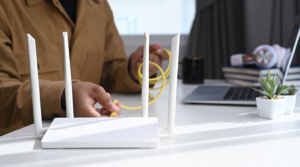
When most people think about pollution, they think about planes, traffic, cities, smoggy air, and power stations. However, you may be surprised to learn that the air quality inside your home can be 10 times worse than outdoor air quality.
Indoor air pollution is a bigger problem in larger cities because high levels of outdoor pollutants find their way into the home. However, country dwellers are not immune to the indoor pollution problems that plague city folks.
Indoor air quality is important because, on average, people spend 90 percent of their time indoors. That is around 150 hours each week.
Couple that with the fact that homes have more insulation and less ventilation and it’s little wonder that the air quality can sometimes be affecting people’s health. Therefore, here are some things you can do to improve the indoor air quality in your home.
1. Open the Windows
This might seem like a no-brainer. One of the easiest ways to keep the air in your home fresh is to let fresher outdoor air in. Opening the windows during the cold times of the year might seem counterproductive, especially since you are trying to stay warm and save money on your heating bill.
However, it is a must that you occasionally let fresh air in and the nasty air that has accumulated in your home out. An additional bonus is that opening your windows during the winter lowers the humidity in your home, making it harder for dust mites, mold, and other unwanted contaminants to survive.
2. Purchase Your Furniture Secondhand
You may say that you love the way new furniture feels and smells. The way the furniture feels is not so much the problem, but it is the smell that might be impacting your home’s air quality.
New furniture releases chemicals known as VOC (volatile organic compounds). These gases are released by fabrics, paints, and glues. When they interact with sunlight and other compounds in the atmosphere, they create particles that can irritate or even damage your lungs.
You can avoid this by purchasing attractive used furniture. Used furniture has likely stopped emitting VOCs. This means all of the harmful gases were let off someone else’s home.
3. Get an Air Purifier
Pollen and dust particles are so tiny that they cannot be seen with the naked eye. Therefore, it’s impossible for you to clean them out of the air without help. This is where the air purifier comes into play.
A quality air purifying machine will remove more than 99 percent of the pollution affecting your indoor air. It sucks in the dirty air, filters it, and releases clean air into your home.
Air purifiers can be especially helpful during hay fever season. Higher quality air filters release negative ions, neutralizing bacteria and airborne viruses.
You want an air filter that has a high clean air delivery rate (CADR). Units with a higher number clean the air faster.
4. Start Using a Dehumidifier
Viruses, dust mites, and mold love moisture, heat, and humidity. This is why they are found in your bathroom and kitchen. If you take a hot shower, close the door. When cooking, put a lid over the pan. Turn on the extractor to get rid of excess steam. If you don’t have an extractor, talk to an electrical services provider. They can walk you through the steps of getting an extractor unit, smoke detector, carbon monoxide detector, and other air purifying devices installed.
5. Use Natural Alternatives
Home cleaning and personal care products are full of harmful chemicals that release toxins into the air long after you have used the product. This is especially true of compounds that are designed to make a room smell better, like perfumes, air fresheners, and incense.
There are several products on the market that are marked natural. However, it’s important to remember that just because an item is marked natural doesn’t really mean that the manufacturer is not using products that can affect your indoor air quality. When possible, plain water and simple soap are your best options for cleaning. Other options include vinegar and lemon.
Enjoy Breathing Fresh Air
It is essential that you have fresh air in your home. Fresh air not only smells better, but it also is better for your health and well-being.


